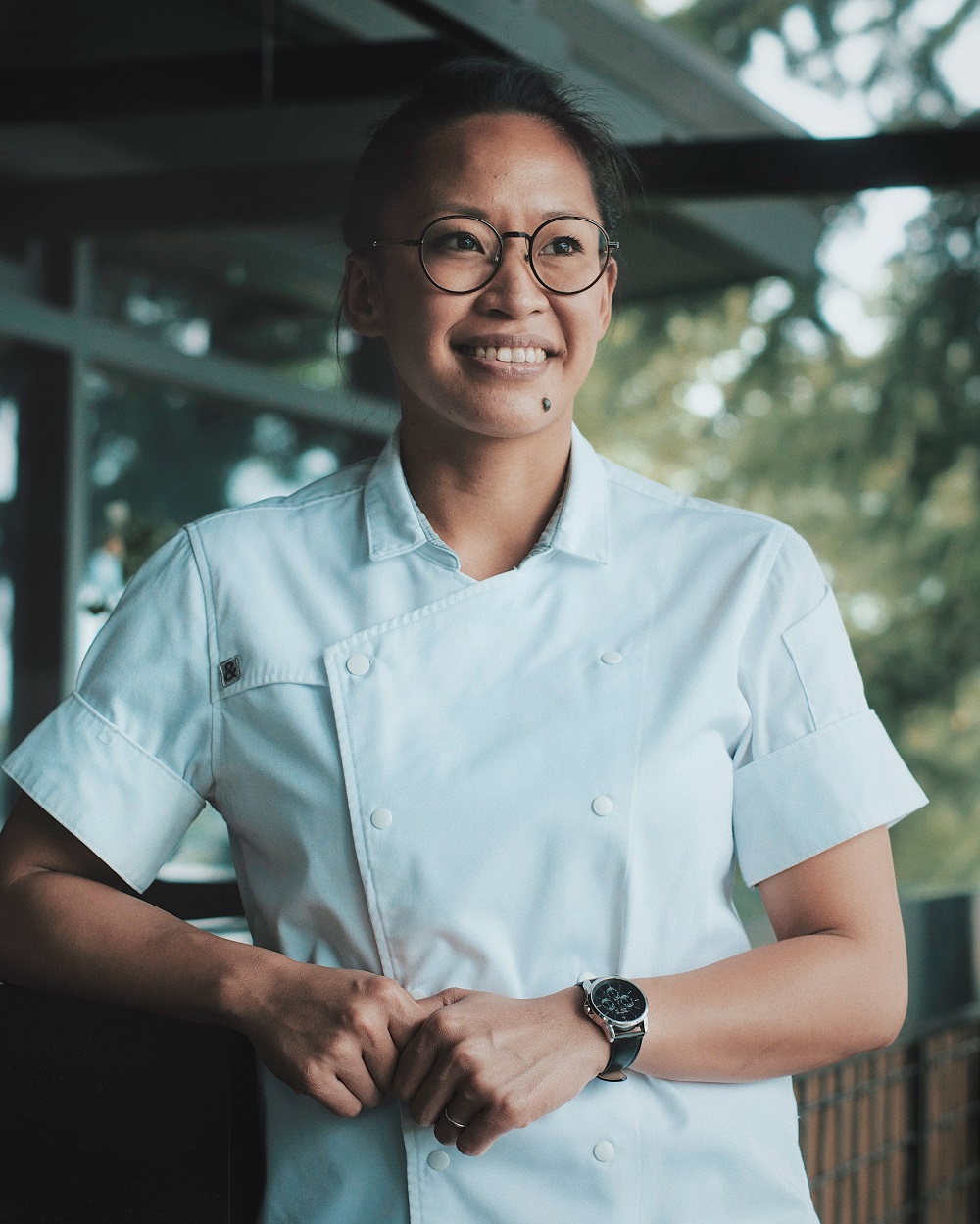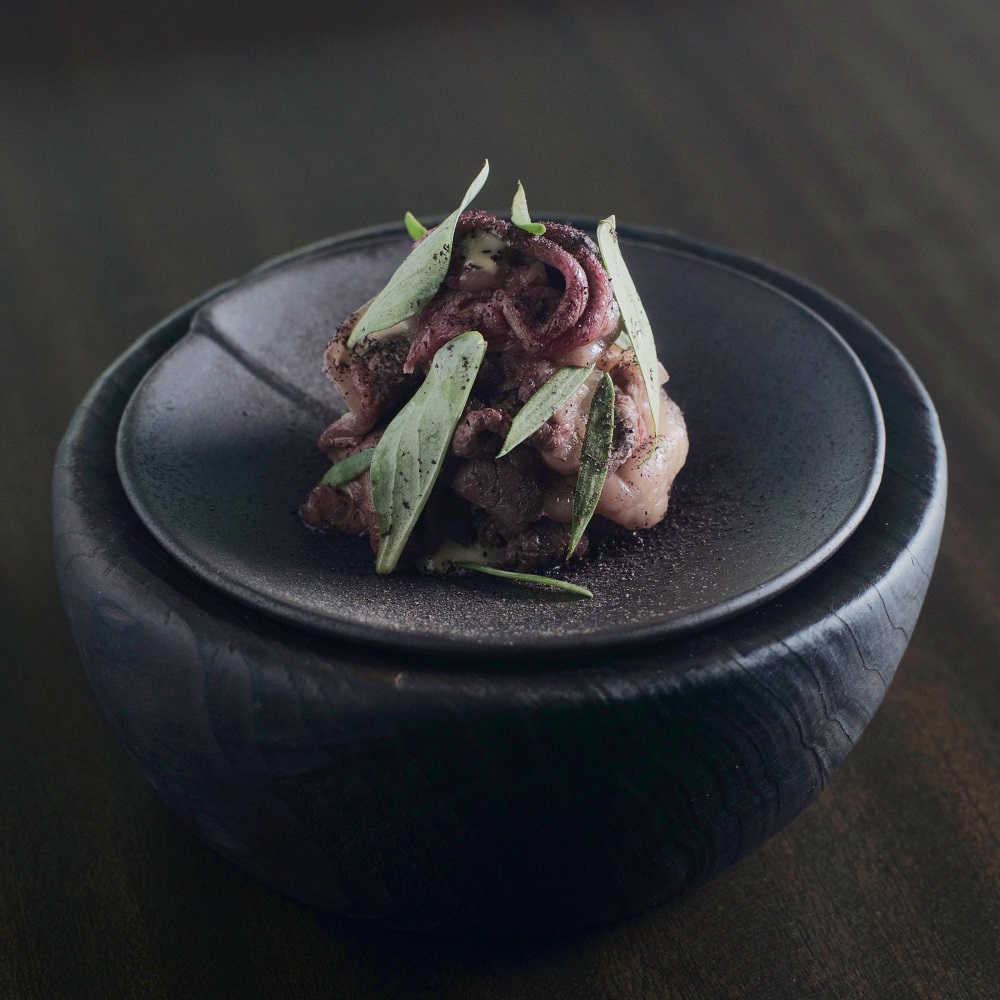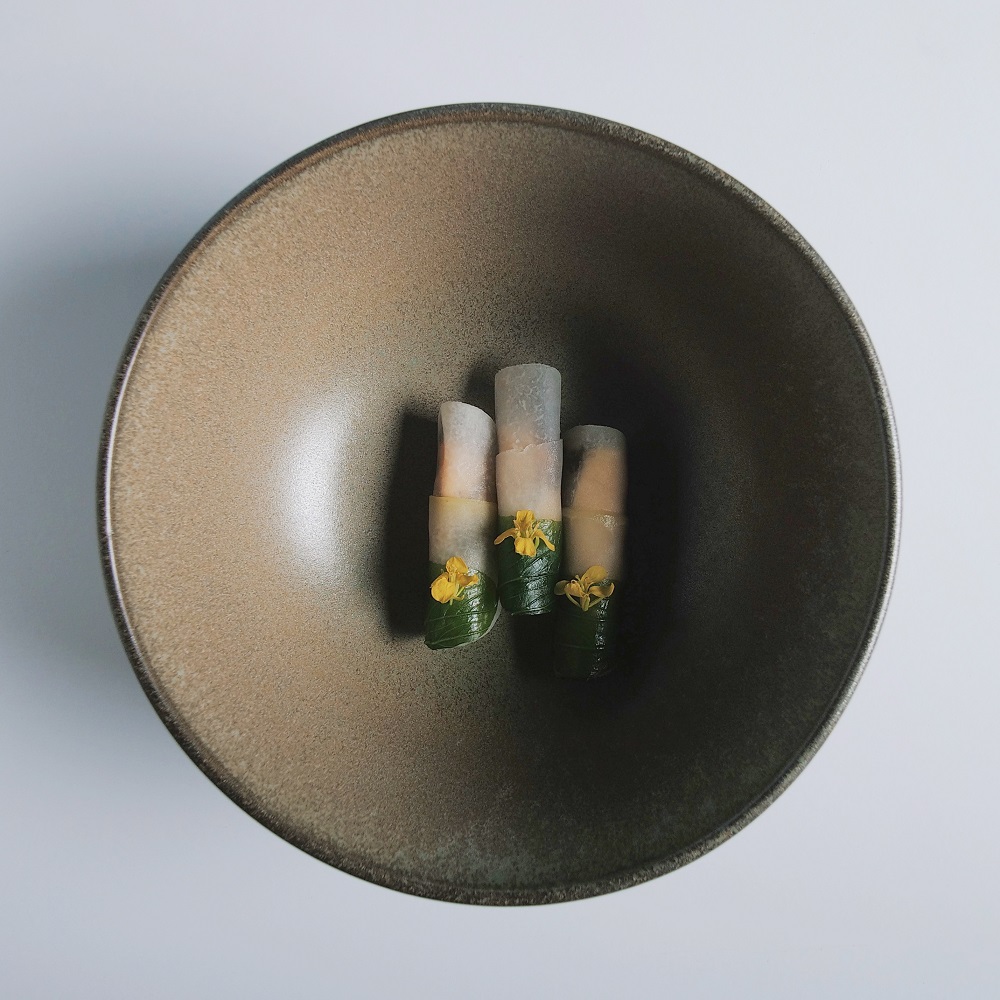Epicure talks to Aisha Ibrahim, the first female executive chef of Canlis about the restaurant’s new culinary direction and why her team’s well-being comes first.

Aisha Ibrahim has spent 15 years honing her skills restaurants such as three-Michelin-starred within the U.S. and abroad, cooking for Ishikawa in Tokyo, Manresa in California, Azurmendi in Basque Country, and eventually running its sister restaurant, Aziamendi, in Phuket. Then the pandemic happened and Ibrahim’s plan to work in Thailand wasn’t going through.
As she began to entertain the idea of exploring job opportunities back in the States, Brian Canlis contacted her to discuss the possibility of becoming the restaurant’s next executive chef. At that time, Seattle’s iconic 70-year-old gastronomic destination suspended their fine-dining operations due to the pandemic. Currently led by the founding family’s third generation, Mark and Brian Canlis, the restaurant experimented with 18 business models last year to weather the uncertain time. From a drive-thru burgers to a themed yurt village, they resiliently tried everything.
After 16 months, Canlis reopened its dining room on July 2021. Aisha Ibrahim is the seventh chef of the restaurant as well as its first female executive chef. “I happen to be the first chef who is a woman and who is also of Filipino descent. To celebrate both – having the qualifications required for this position and the identity – is a privilege I get to share with others who can connect to that story. Canlis has always seemed to have a way to remain ahead of its time, and I’m grateful to continue to be a leader in this industry surrounded by a team and restaurant family who work hard to continue pushing for progress,” states Ibrahim.
-kevin-scott---canlis-(23).jpeg)
Seattle, Lake Union and the Cascade mountain range are visible from Canlis
Last year turned out to be a tumultuous year for the restaurant industry, globally and in the U.S. What’s your take on this year?
I think as we take things week by week or day by day with Omicron, we are reminded daily that we have little control over what the pandemic brings to this industry (dining restrictions or vaccination requirements, for example). We do have control over how calm and collected we can remain as things change rapidly.
As a leader on this team, my team depends on me to make the best decisions for the team and our guests that I possibly can at all times. As hectic or frustrating as things may get, I’m confident that I can continue to weather this storm of the upcoming year with the support of my sous chefs, the owners, and the dining room managers. Mark, one of our owners, is always quick to remind our leadership team that we write the rules. It is a saying that reminds me that we do have some ability to control our outcome or at least limit the impact of certain things that may seem impossible to overcome.

Shaved Wagyu
Will we see more innovations from Canlis like we did last year?
With the rise in cases of the most recent variant, we have just switched from being a four-course prix fixe menu to offering an eight-course tasting menu with some options to upgrade. This pivot allows us to provide a safer environment for our team as we require less staff for service, and also allows us to begin writing our four-day work schedules. There are a couple of other really exciting things coming up that I can’t share too much about just yet, but if there is one thing we can always expect of this restaurant, is our ability to change and be adaptive in the face of adversity.
You’ve been working in the U.S. and abroad. How are these experiences form your culinary direction at Canlis?
I’m heavily influenced by the time I spent cooking in California, Spain and Japan in terms of being driven by seasonality. Applying that lens to this region allows us to explore it more thoroughly and create an expression that represents this chapter of Canlis. In writing the menu, I am often informed by the products and season first, and the ideas are usually filled with nuanced flavours rather than anything too disruptive of the natural flavour of things. A lot of my past cooking experiences have also utilised charcoal and live-fire cooking which will always have a place in my menus.

Poached and Chilled Mussels with kohlrabi wrapped in brassicas
Can you share about Canlis’ new menu?
This year we are working harder than ever to build a strong team that will continue to research and create a more thorough connection to this region. I’m very excited to be building out our research and development arm at the Bread Lab, and making a functioning model that supports the needs of the volume of Canlis. The new menu will focus on sustainability, introducing topics such as biodiversity, waste reduction, ageing products to optimise their flavours, and supporting the local supply chain.
We support some incredible local producers such as a biodynamic farm run by Alice and Peter, two long-time friends of the restaurant whose produce is simply exceptional because of their unique microclimate; Tian Tian Farm in Vashon Island which grows Szechuan peppercorns; buckwheat honey from Sunny Honey; Neil’s Big Leaf Maple Syrup; kasu, a sake by-product from Tahoma Fuji Sake Brewing Company; Holmquist’s hazelnuts; Walla Walla’s sweet onions; and the seafood bounty from the Pacific Northwest. I’m a lover of anything coming from the ocean, and look forward to be evolving our current fish cooking techniques as we learn more about our local waters.
You’ve been part of Canlis for nine months, what are your most proud accomplishment so far?
I’m proud of the direction of the programme. The restaurant offers things like paid-time off, 401k, great health coverage, and such a unique and caring culture. Many of these things are nonexistent in other fine-dining programmes. I’m proud to be a leader in a restaurant that believes in offering these things.
The last nine months have been such a challenge with the ongoing pandemic, restrictions, new variants, and the issues hounding our industry such as lack of staff and extremely high burnout. We have nearly 40 staff in the kitchen. The longest tenured cooks have been on the team for nearly eight years. The team is from all over the U.S. and overseas, including a cook trainer from Singapore. I think one thing we aim for this year and is currently a point we are reaching is to create a healthy and sustainable schedule for the team.
It is a goal of ours to have the kitchen team four days on and three days off each week. In an industry that has a particularly high rate of burnout, and coming from someone who has grown up in this industry in the last 15 years, the need for a stronger work/life balance is imperative.
-kevin-scott---canlis-(30).jpeg)
Canlis, Seattle’s iconic gastronomic destination